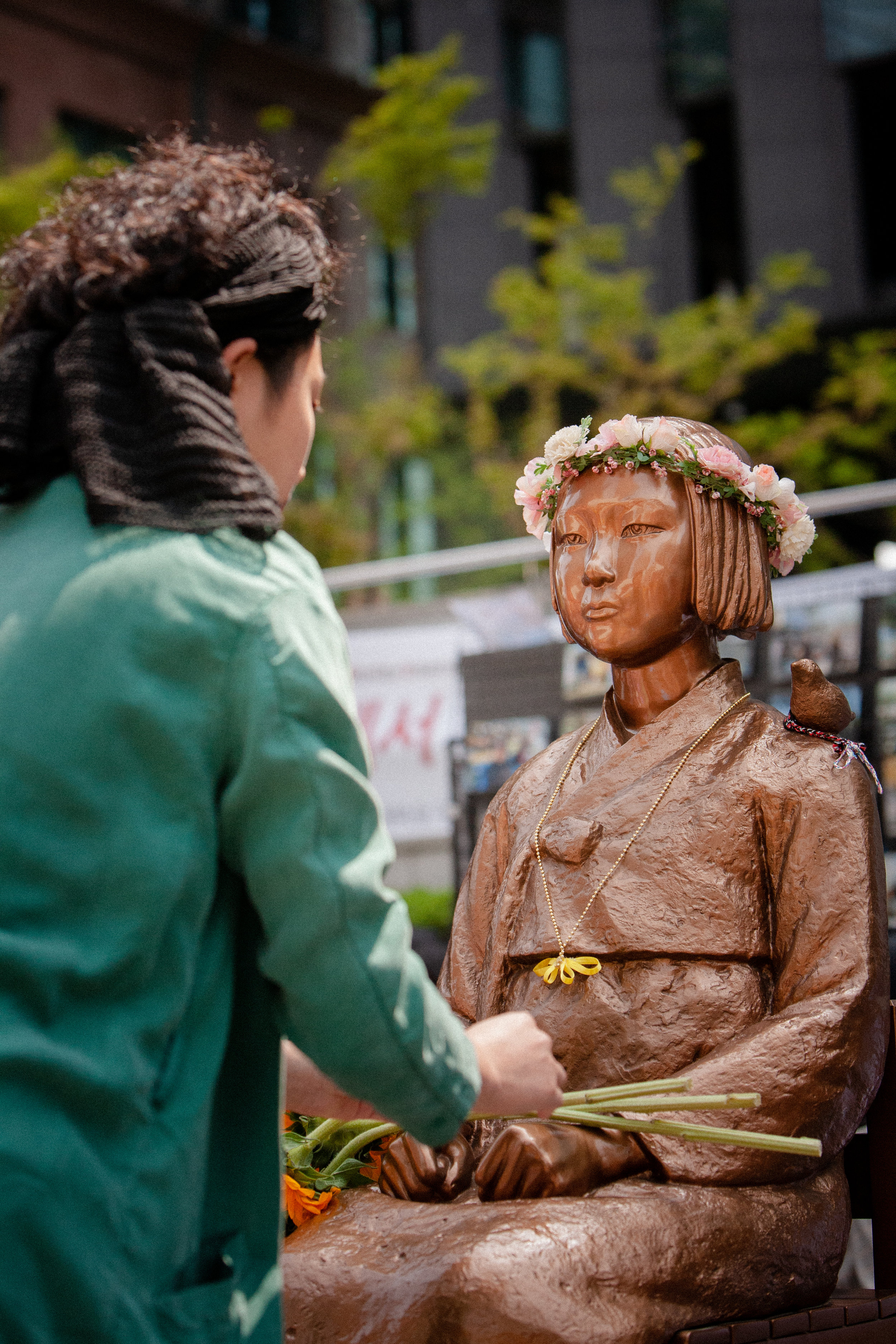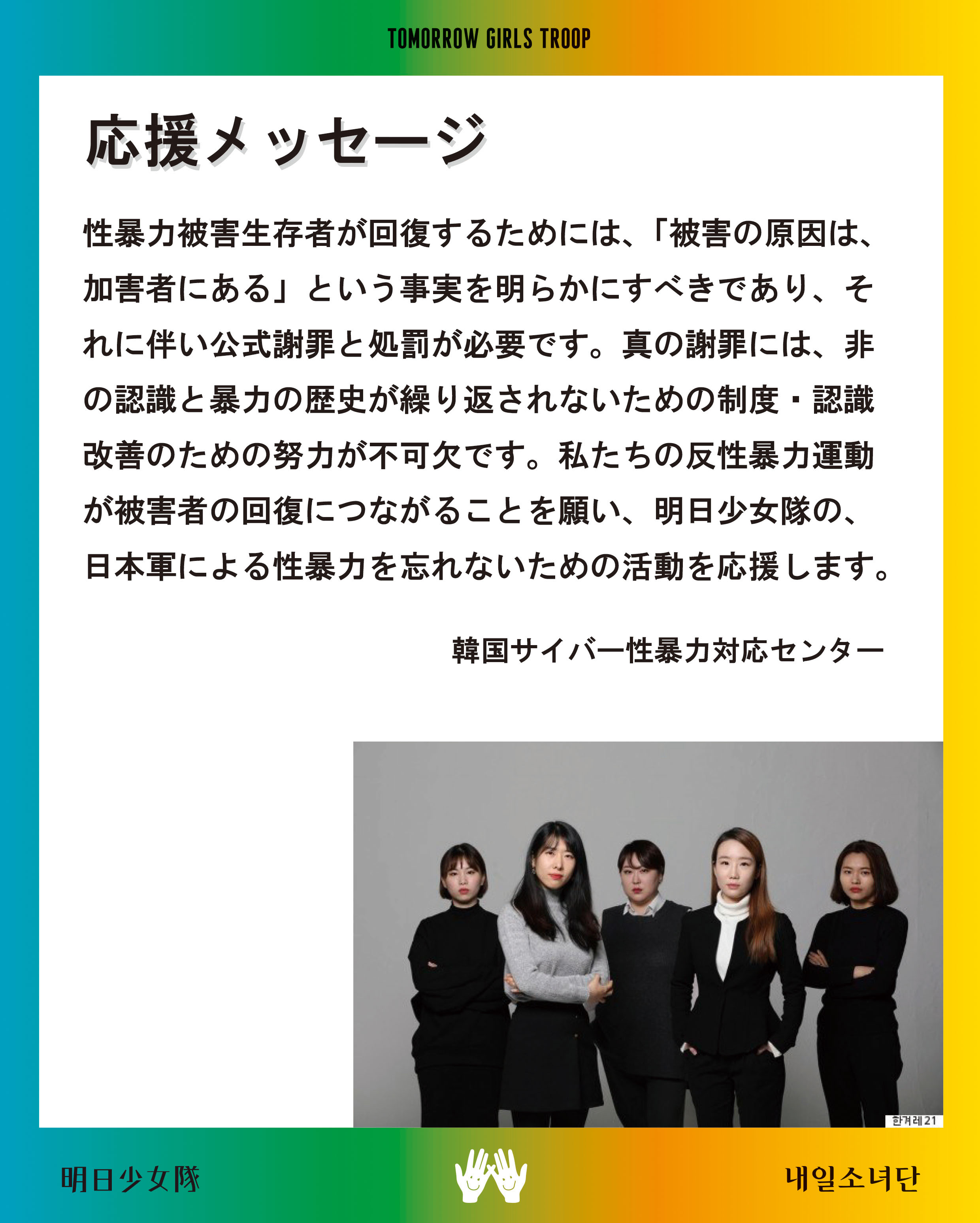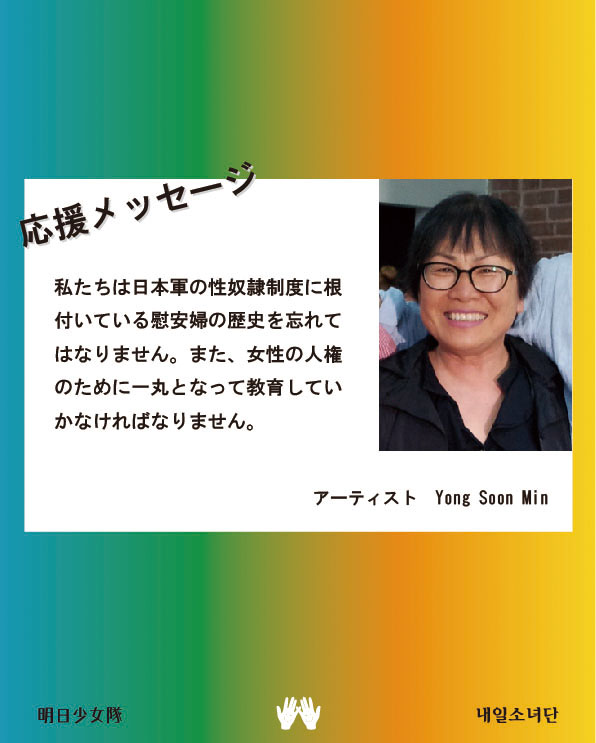Text: Myeongsoon Kim, Jong-suk Ho of Tomorrow Girls Troop
<Against Forgetting> by Tomorrow Girls Troop commemorates Japanese victims of Japanese sexual slavery during WWII together with Korean victims, to seek possibilities of women’s solidarity beyond the borders of nation-states.
“We see a deep connection between the repetitive burial of history into oblivion and our society’s attitude which often erases the voices of victims of sexual violence. We aim to disobey such power that silences stories and voices of survivors.”
Our project not only covers individually conducted performances but also includes the production and distribution of the documentation, and activities to spread awareness on the issue in Japan.
The performance has been conducted in Seoul, Tokyo and Glendale LA. The stories and history of the cities where each performance takes place plays an important role in the context of the understanding surrounding the issue, and each performance has been modified specific to the site. The location, composition and choreography of the work were all accordingly modified as well as the contextual emphasis and methodologies in the approach.
We are writing here about the performance that took place in Seoul
Seoul Performance
For the performance in Seoul, we focused on overcoming the binary framework of nationalistic borders between Korea and Japan by putting an emphasis on the shared memory of female victims and sisterhood. Most Korean people already knew about the issue surrounding Japanese sexual slavery, so the context largely differs from Glendale and Tokyo where the emphasis laid in spreading awareness about the issue.
Accordingly, we decided to conduct a performance commemorating victims of Japanese women in the Japanese sexual slavery during the 1385th Wednesday demonstration. The performance was in collaboration with Korean female college students and Japan’s anti-war feminist artist, Yoshiko Shimada, who has been performing her work, Becoming a Statue of Japanese ‘Comfort’ Woman since 2012. The performance had been planned to coincide with the day of the new Japanese emperor's coronation, celebrating the beginning of a ‘new’ year with a new Japanese emperor, giving the performance more meaningful.
Japan is the only country that uses emperor calendar nowadays. For example, instead of writing 2019, Official Documents in Japan are written as Reiwa (name of the new year; each year has a name) 1st year.















